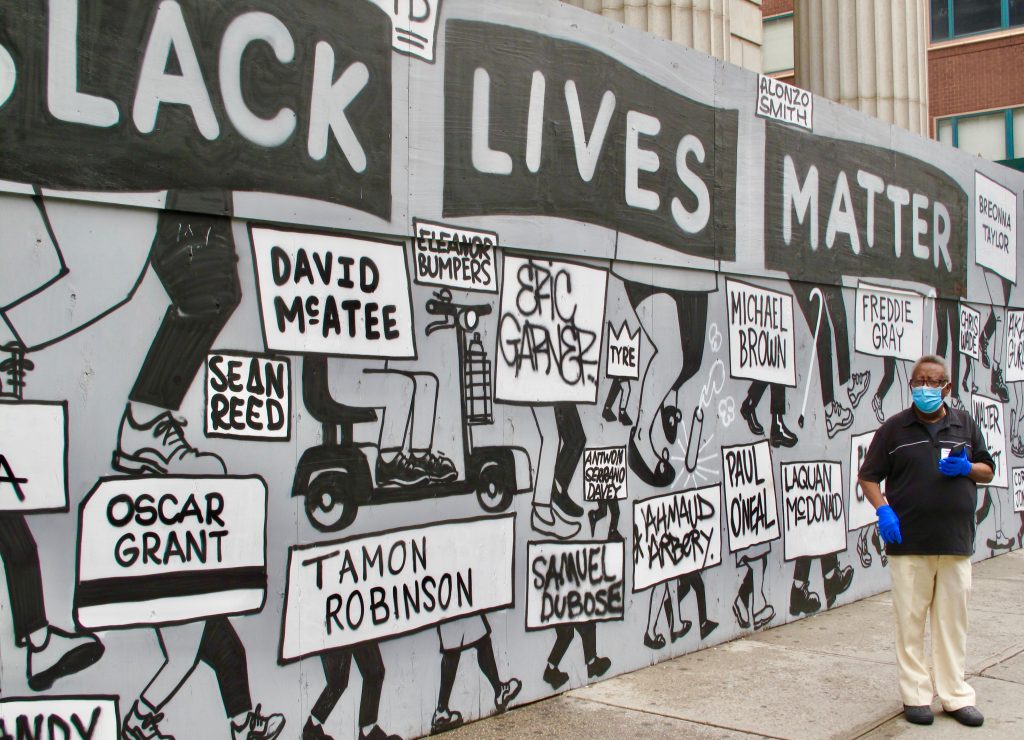
Wednesday, September 2
Things in New York City are better than I expected them to be. So far, I have driven Emily for her test to Weill-Cornell Hospital…and, for technical reasons, she had to go back on a second day via subway.
Each of us has taken the subway a few times and found it to be cleaner than usual and not crowded. Yesterday, I went to see my urologist, which meant taking the 6 train from Union Square to 34th St. And today, I went from Union Square to Grand Central via the 5 train, and—tah-dah!—I got a haircut, the first since February. My barber was quite diplomatic regarding the evidence of haircuts that Emily had given me.
Most everyone I have seen is wearing a face mask, although some people cheat by pulling the mask down below their noses. Emily says she saw a guy on her train with a mask pulled down below his chin—then, when the train pulled into a station and he left to go outside, he pulled the mask back over his nose and mouth. Dude! Just backwards! The danger lurks in enclosed spaces like train cars, and everyone is less vulnerable outside.
I haven’t really gotten around town that much so far, but I have seen a few signs of “Black Lives Matter” protests. No, there are no burned-out police cars or gutted buildings, but there is a very nice BLM mural on the east side of Union Square park.
The Wednesday farmers’ market at Union Square also seemed pretty much normal. The farm stands are much as I remember them but socially distanced. Patrons are advised that they must use hand sanitizer before handling any produce. Everyone has masks and many people have gloves. I got beefsteak tomatoes, peaches, Gala apples, and whole-grain health bread.
As expected, we did have an avalanche of mail waiting for us. That includes lots of already-paid bills that can be shredded. A bunch of magazines that I have already read in electronic form. Other odds and ends. And, oh: The “Economic Impact Payment Card” with its CARES Act direct economic assistance of $2,400. A letter from our President reports that “America will triumph yet again—and rise to new heights of greatness.” One must activate the card, just as you would a new credit card, and then either transfer the funds to a bank account or use the card as one would a debit card.
There were three pieces of mail concerning the payment, one from Trump, one from the Treasury Dept. saying that we may have overlooked the card. And finally and most curiously, one from “Money Network Cardholder Services” of Omaha, Nebraska, looking for all the world like some junk-mail scam that you’d just as well throw in the circular file.. THIS IS THE CARD. They couldn’t have disguised it better.
Dinner: Turkey chili and a lettuce, tomato, and radish salad.
Entertainment: episodes of Netflix’ Spanish-language mystery Alta Mare.



